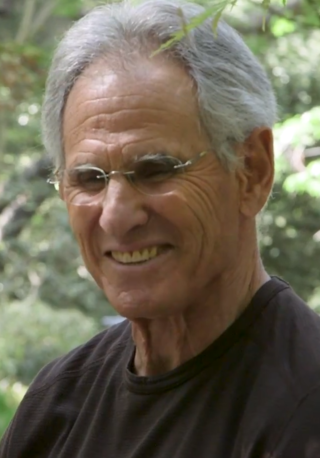
Consciousness, at its simplest, is awareness of internal and external existence. However, its nature has led to millennia of analyses, explanations, and debate by philosophers, scientists, and theologians. Opinions differ about what exactly needs to be studied or even considered consciousness. In some explanations, it is synonymous with the mind, and at other times, an aspect of mind. In the past, it was one's "inner life", the world of introspection, of private thought, imagination, and volition. Today, it often includes any kind of cognition, experience, feeling or perception. It may be awareness, awareness of awareness, metacognition, or self-awareness either continuously changing or not. The disparate range of research, notions and speculations raises a curiosity about whether the right questions are being asked.
Materialism is a form of philosophical monism which holds that matter is the fundamental substance in nature, and that all things, including mental states and consciousness, are results of material interactions of material things. According to philosophical materialism, mind and consciousness are caused by physical processes, such as the neurochemistry of the human brain and nervous system, without which they cannot exist. Materialism directly contrasts with idealism, according to which consciousness is the fundamental substance of nature.
Meditation is a practice in which an individual uses a technique to train attention and awareness and detach from reflexive, "discursive thinking," achieving a mentally clear and emotionally calm and stable state, while not judging the meditation process itself.

Hilary Whitehall Putnam was an American philosopher, mathematician, computer scientist, and figure in analytic philosophy in the second half of the 20th century. He contributed to the studies of philosophy of mind, philosophy of language, philosophy of mathematics, and philosophy of science. Outside philosophy, Putnam contributed to mathematics and computer science. Together with Martin Davis he developed the Davis–Putnam algorithm for the Boolean satisfiability problem and he helped demonstrate the unsolvability of Hilbert's tenth problem.
The relationship between Buddhism and science is a subject of contemporary discussion and debate among Buddhists, scientists, and scholars of Buddhism. Historically, Buddhism encompasses many types of beliefs, traditions and practices, so it is difficult to assert any single "Buddhism" in relation to science. Similarly, the issue of what "science" refers to remains a subject of debate, and there is no single view on this issue. Those who compare science with Buddhism may use "science" to refer to "a method of sober and rational investigation" or may refer to specific scientific theories, methods or technologies.

The Emperor's New Mind: Concerning Computers, Minds and The Laws of Physics is a 1989 book by the mathematical physicist Roger Penrose.

Orchestrated objective reduction is a highly controversial theory postulating that consciousness originates at the quantum level inside neurons. The mechanism is held to be a quantum process called objective reduction that is orchestrated by cellular structures called microtubules. It is proposed that the theory may answer the hard problem of consciousness and provide a mechanism for free will. The hypothesis was first put forward in the early 1990s by Nobel laureate for physics Roger Penrose, and anaesthesiologist Stuart Hameroff. The hypothesis combines approaches from molecular biology, neuroscience, pharmacology, philosophy, quantum information theory, and quantum gravity.

Emergentism is the belief in emergence, particularly as it involves consciousness and the philosophy of mind. A property of a system is said to be emergent if it is a new outcome of some other properties of the system and their interaction, while it is itself different from them. Within the philosophy of science, emergentism is analyzed both as it contrasts with and parallels reductionism. This philosophical theory suggests that higher-level properties and phenomena arise from the interactions and organization of lower-level entities yet are not reducible to these simpler components. It emphasizes the idea that the whole is more than the sum of its parts. Historically, emergentism has significantly influenced various scientific and philosophical ideas, highlighting the complexity and interconnectedness of natural systems.
Henry Pierce Stapp is an American mathematical physicist, known for his work in quantum mechanics, particularly the development of axiomatic S-matrix theory, the proofs of strong nonlocality properties, and the place of free will in the "orthodox" quantum mechanics of John von Neumann.
Mindfulness is the cognitive skill, usually developed through meditation, of sustaining meta-attention on the contents of one's own mind in the present moment. Mindfulness derives from sati, a significant element of Hindu and Buddhist traditions, and is based on Zen, Vipassanā, and Tibetan meditation techniques. Though definitions and techniques of mindfulness are wide-ranging, Buddhist traditions describe what constitutes mindfulness, such as how perceptions of the past, present and future arise and cease as momentary sense-impressions and mental phenomena. Individuals who have contributed to the popularity of mindfulness in the modern Western context include Thích Nhất Hạnh, Joseph Goldstein, Herbert Benson, Jon Kabat-Zinn, and Richard J. Davidson.

Jon Kabat-Zinn is an American professor emeritus of medicine and the creator of the Stress Reduction Clinic and the Center for Mindfulness in Medicine, Health Care, and Society at the University of Massachusetts Medical School. Kabat-Zinn was a student of Zen Buddhist teachers such as Philip Kapleau, Thich Nhat Hanh, and Seung Sahn, and a founding member of Cambridge Zen Center. His practice of hatha yoga, Vipassanā and appreciation of the teachings of Soto Zen and Advaita Vedanta led him to integrate their teachings with scientific findings. He teaches mindfulness, which he says can help people cope with stress, anxiety, pain, and illness. The stress reduction program created by Kabat-Zinn, mindfulness-based stress reduction (MBSR), is offered by medical centers, hospitals, and health maintenance organizations, and is described in his book Full Catastrophe Living.
Mindfulness-based cognitive therapy (MBCT) is an approach to psychotherapy that uses cognitive behavioral therapy (CBT) methods in conjunction with mindfulness meditative practices and similar psychological strategies. The origins to its conception and creation can be traced back to the traditional approaches from East Asian formative and functional medicine, philosophy and spirituality, birthed from the basic underlying tenets from classical Taoist, Buddhist and Traditional Chinese medical texts, doctrine and teachings.
Jeffrey M. Schwartz is an American psychiatrist and researcher in the field of neuroplasticity and its application to obsessive-compulsive disorder (OCD). He is a proponent of mind–body dualism and appeared in the 2008 film Expelled: No Intelligence Allowed

Buddhism includes an analysis of human psychology, emotion, cognition, behavior and motivation along with therapeutic practices. Buddhist psychology is embedded within the greater Buddhist ethical and philosophical system, and its psychological terminology is colored by ethical overtones. Buddhist psychology has two therapeutic goals: the healthy and virtuous life of a householder and the ultimate goal of nirvana, the total cessation of dissatisfaction and suffering (dukkha).

Irreducible Mind: Toward a Psychology for the 21st Century is a 2007 psychological book by Edward Francis Kelly, Emily Williams Kelly, Adam Crabtree, Alan Gauld, Michael Grosso, and Bruce Greyson. It attempts to bridge contemporary cognitive psychology and mainstream neuroscience with "rogue phenomena", which the authors argue exist in near-death experiences, psychophysiological influence, automatism, memory, genius, and mystical states.

Cordelia Fine is a Canadian-born British philosopher of science, psychologist, and writer. She is a full professor in the History and Philosophy of Science programme at the University of Melbourne, Australia. Fine has written three popular science books on the topics of social cognition, neuroscience, and the popular myths of sex differences. Her latest book, Testosterone Rex, won the Royal Society Science Book Prize, 2017. She has authored several academic book chapters and numerous academic publications. Fine is also noted for coining the term 'neurosexism'.

Scott O. Lilienfeld was a professor of psychology at Emory University and advocate for evidence-based treatments and methods within the field. He is known for his books 50 Great Myths of Popular Psychology, Brainwashed, and others that explore and sometimes debunk psychological claims that appear in the popular press. Along with having his work featured in major U.S. newspapers and journals such as The New York Times, The New Yorker, and Scientific American, Lilienfeld made television appearances on 20/20, CNN and the CBS Evening News.

Mastermind: How to Think Like Sherlock Holmes, released January 3, 2013, is a book written by Maria Konnikova exploring ways to improve mindfulness, logical thinking and observation using Arthur Conan Doyle's fictional character Sherlock Holmes as an exemplar. Konnikova intertwines her analysis of Holmes's "habits of mind" with findings from the modern-day fields of neuroscience and psychology and offers advice on how to become a more rational thinker.

Altered Traits: Science Reveals How Meditation Changes Your Mind, Brain, and Body, published in Great Britain as 'The Science of Meditation: How to Change Your Brain, Mind and Body', is a 2017 book by science journalist Daniel Goleman and neuroscientist Richard Davidson. The book discusses research on meditation. For the book, the authors conducted a literature review of over 6,000 scientific studies on meditation, and selected the 60 that they believed met the highest methodological standards.
Anne Harrington is an American science historian and the Franklin L. Ford Professor of the History of Science at Harvard University. Her primary research area is the history of psychiatry, neuroscience, and cognitive science.











